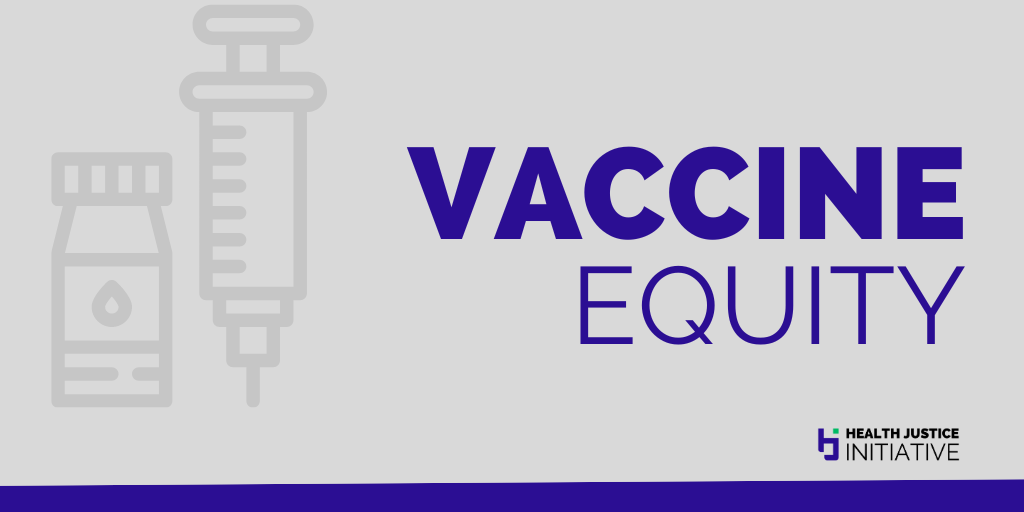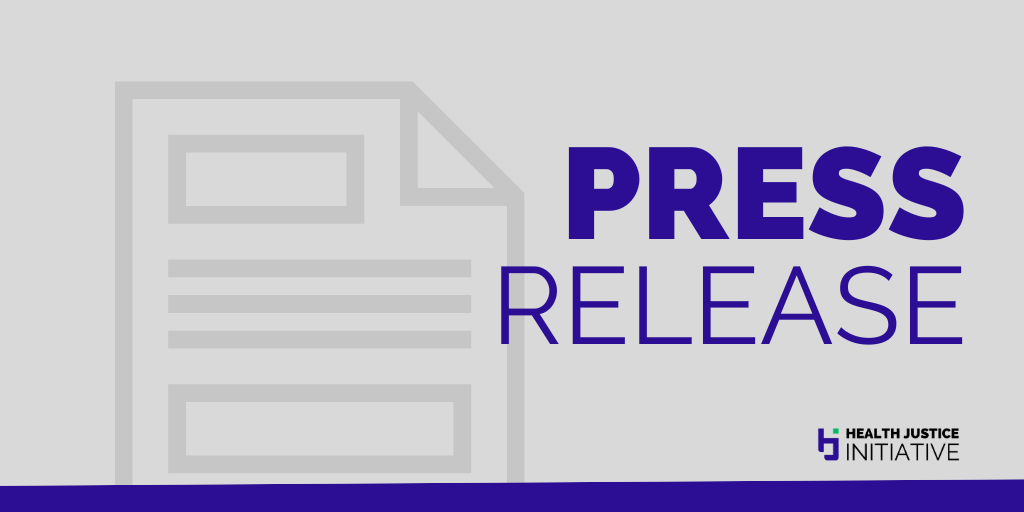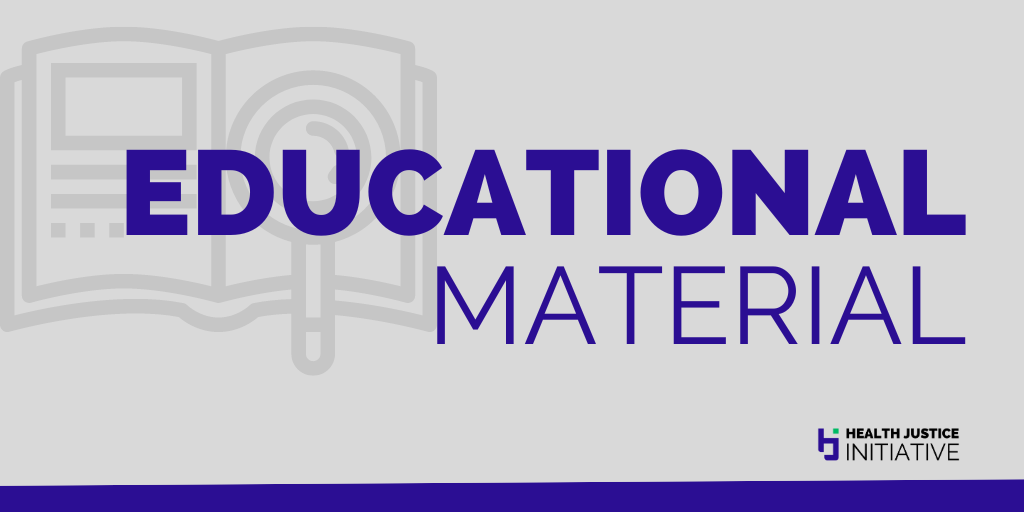HJI takes South African Government to court to blow the lid on Covid vaccine procurement secrecy.
- The case will be heard on Tuesday 25 July 2023, by the High Court of South Africa, Gauteng
Division, Pretoria. Starting at 09h00 in courtroom 4G. CASE NO: 10009/22 - See the Notice of Motion and Heads of Argument here
- This case is about vaccine procurement secrecy by the South African government and pharmaceutical manufacturers in the main.
- The public’s constitutional right to access information about public procurement has been flouted.
Tuesday 25 July 2023; Today the Health Justice Initiative (HJI) will ask the Gauteng High Court for an order instructing the Minister of Health and Department of Health to disclose records concerning the procurement of Covid-19 vaccines by the National Department of Health. Specifically, HJI seeks access to the vaccine procurement contracts concluded with vaccine manufacturers and suppliers, and the records of negotiation with those parties.
By June 2023, more than 38 million Covid-19 vaccine doses were administered in South Africa, having received several million vaccine doses by directly buying from pharmaceutical companies, through the COVAX facility, and by donations. However, the content of these agreements including the complete details of the contracting parties is unknown and remains a secret. The HJI believes that at the very least, contracts must have at least been entered into with the SA government and Johnson & Johnson and Pfizer as these are the vaccines South Africa is administering in the national vaccine rollout programme.
These vaccines have been procured at great cost. The actual cost has not been disclosed, although the 2021 National Budget allocated an amount of R10-billion for the purchase of Covid-19 vaccines. It is for this reason that in 2021 the Health Justice Initiative (HJI) used South Africa’s access to information law, the Promotion of Access to Information Act (commonly referred to as ‘PAIA’) to request access to the vaccine procurement contracts. The government refused.
Fatima Hassan, Head of the HJI, says; “There is a heightened need for transparency and accountability especially during a national disaster, where several of the usual checks and balances are limited. Disclosure is even more important in the health sector following serious allegations that globally, powerful pharmaceutical companies bullied countries into signing secret contracts at the time and locally, that corruption has diverted millions of rands away from Covid-19 relief measures and other health services. Therefore, then and now, and especially under NHI, we must ensure that the procurement of public goods using public funds includes the highest levels of contractual transparency too. The public has a right to know what our government agreed to, when and with whom, at what price, and of course, why. These companies should not try to distort our democracy by insisting on this type of secrecy.”
The Department of Health has argued in its legal papers it cannot make the contracts public because it is bound by confidentiality clauses that preclude disclosure and that disclosure ‘would prejudice it and the vaccine manufacturers in future engagements’. The Department of Health contends that its non-disclosure is lawful, and it is not required to disclose this information.
The HJI disagrees, we have argued that because the contracts concern significant public funds, the lack of transparency violates the Constitutional principle that public administrations must be accountable and foster transparency by providing the public with timely, accessible, and accurate information. It also undermines the public’s Constitutional right to information and places the Department of Health in breach of its duty to procure goods through a process that is fair, equitable, and transparent,” says Hassan.
The HJI submits that such disclosure is in the public interest. Additionally, previous media reports indicate that the South African government may have been forced to overpay for vaccines or to accept extremely onerous procurement terms, including broad indemnification clauses, export restrictions, and worrisome non-refundability clauses.
“Essentially, our government traded secrecy for scarce supplies at the behest of very powerful vaccine manufacturers and intermediaries, who made huge profits on sales. Our government should stand up to these companies. By agreeing to these onerous Non-Disclosure Agreements (NDAs) our government is enabling secrecy that only pharma companies benefit from,” comments Hassan.
Although HJI believes that litigation should always be a last resort, it hopes that the South African government through the National Department of Health will publish all the unredacted contracts immediately – as it is a matter of grave public importance. Importantly by releasing this information, it will blow the lid on Covid contract secrecy, which is undoubtedly a global issue, and create an important precedent that other countries can leverage to demand open contracting in their jurisdictions with the same companies. Finally, the case may contribute towards Pandemic Preparedness measures and bolster provisions on transparency and accountability in Pandemic Treaty negotiations and could set a precedent for how procurement under NHI and any other health crisis, should proceed.
“We hope this case will set a clear precedent for future pandemics and under NHI too, that public procurement information should not be secret. We hope it places a spotlight on the factors that enable contractual secrecy to ensure vaccine and other manufacturers stop trading lifesaving medicines and vaccines for secrecy and power,” concludes Hassan.
The matter will be heard on 25 July 2023 before Millar J in the Pretoria High Court.
-ends-
Useful Links:
- All legal papers (filed by HJI and the South African National Department of Health) are available here
- HJI’s case FAQ is available here
- New York Times story on Johnson & Johnson- Aspen contract and supplies leaving SA is available here
- ‘Open Contracts’ case images available here
Credit: Open Access, As supplied. Photographer: Lindsey Appolis
By-line: Activists highlight the dangers of secret government procurement contracts on Covid-19 vaccines. During the pandemic crisis, pharmaceutical companies had the power to hold governments to ransom.
About the Health Justice Initiative
The HJI is a dedicated public health and law initiative addressing the intersection between racial and gender inequality. The HJI was launched in July 2020 in South Africa to advocate for a more inclusive, equitable public health system, locally and globally, both during and beyond the pandemic. The HJI uses the law, research, and advocacy to tackle the factors that shape inequity in health access and work towards ensuring access to lifesaving diagnostics, treatment, and vaccines. The HJI is represented by Power and Associates in this case.
Media Queries:
For media queries and interview requests contact Angie Richardson at 083 397 2512 (WhatsApp preferable) or [email protected]




